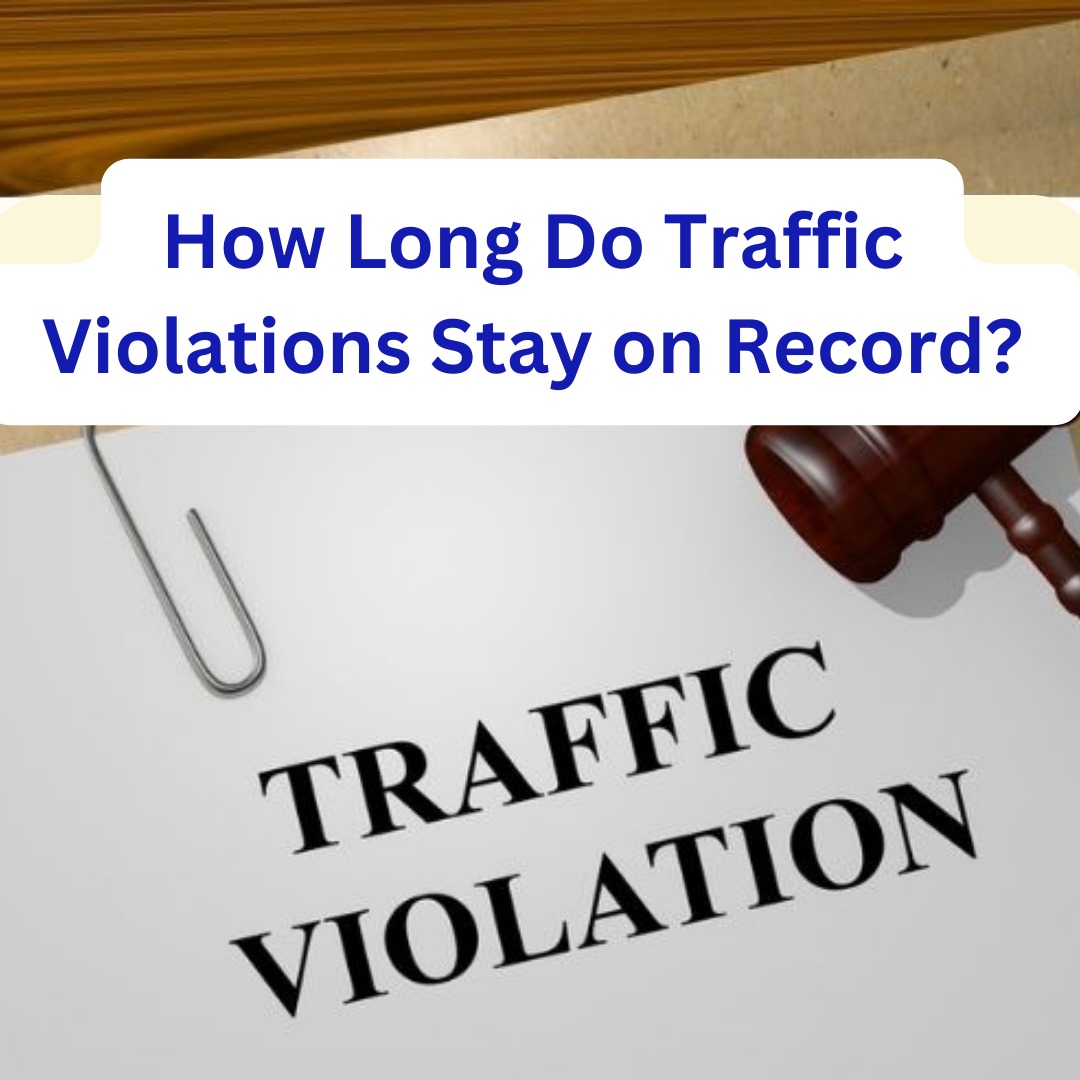How Long Do Traffic Violations Stay on Record?
Dealing with a traffic violation can be stressful, and it’s natural to wonder how long this inconvenience will affect your driving record. Let’s explore this topic in simple terms, helping you understand the duration traffic violations might linger on your record and how this impacts your driving life.
What Is a Traffic Violation Record?
A traffic violation record is a documented log of any offenses you’ve committed while driving. These violations can range from minor infractions like speeding slightly over the limit to more severe offenses like reckless driving. Each state has different rules, but all keep some form of record that can affect your driving privileges and insurance rates.
How Long Do Traffic Violations Affect Your Record?
The duration that a traffic violation stays on your record varies by state and the severity of the offense. Typically, minor infractions might stay on your record for about three to five years, whereas more serious violations could remain for ten years or more. Some states even keep records of severe infractions for a lifetime, especially if they involve DUIs or serious accidents.
Can You Check Your Current Traffic Violation Record?
Yes, you can check your current traffic violation record. Each state offers a way to view your driving record, often through their Department of Motor Vehicles (DMV) website. For instance, in New Jersey, you can use the NJ ticket lookup feature on the www.njmcdirect.com website to check for any tickets and their status on your record. It’s a convenient way to see what’s on your file without having to visit a DMV office.
What Can You Do to Clear Your Traffic Record?
In some cases, you can take action to remove violations from your record sooner. Many states offer options like traffic school or defensive driving courses to help reduce points on your license or even clear a violation entirely. However, eligibility for such programs depends on the specific violation and state regulations.
How Do Traffic Violations Affect Your Daily Life?
Traffic violations on your record can affect various aspects of your daily life, primarily through increased car insurance premiums. Some employers also check driving records, especially if the job involves operating a vehicle. Therefore, maintaining a clean record is beneficial for both your personal and professional life.
Conclusion: Why Is It Important to Keep a Clean Driving Record?
Keeping a clean driving record is essential not only to save on costs like insurance but also to ensure that your driving privileges are not jeopardized. Regularly checking your record, using services like NJMCDirect, and attending to any violations responsibly can help you manage your driving history effectively.
How Can Different Violations Vary in Impact?
The impact of different traffic violations can vary significantly based on the nature of the offense:
- Minor Infractions: Such as speeding slightly over the limit or failing to stop completely at a stop sign. These are often cleared from your record after a few years and may only require paying a fine.
- Major Violations: These include offenses like DUI or reckless driving. They can stay on your record for a much longer period, sometimes permanently, and usually involve heavier penalties, including significant fines, license suspension, or even jail time.
- Accidents: If you’re at fault in a traffic accident, this can also affect your record. The duration it remains on your record can depend on the severity of the accident and any injuries involved.
What Are the Long-Term Consequences of Traffic Violations?
Understanding the long-term consequences of maintaining violations on your record is crucial:
- Insurance Premiums: The more severe the violation, the higher the risk you pose to insurers, which translates into higher premiums.
- Employment Opportunities: For professions requiring driving, a clean record is often a prerequisite. Traffic violations can limit job opportunities or lead to job loss if driving is a critical part of your role.
- Legal Restrictions: Severe violations can lead to restrictions such as the revocation of your driver’s license or legal sanctions that might restrict your travel or daily activities.
Tips for Managing and Minimizing the Impact of Traffic Violations
Here are some practical tips to manage and minimize the impact of traffic violations on your record:
- Stay Informed: Regularly check your driving record through platforms like NJMCDirect to stay updated on your status.
- Attend Driving Courses: Enroll in defensive driving courses or traffic school if eligible. These can sometimes help to reduce points on your license or dismiss tickets.
- Practice Safe Driving: The best way to avoid the complications of traffic violations is by adhering to traffic laws and practicing safe driving habits.
- Consult Legal Help: For serious violations, consulting with a traffic attorney can provide guidance on how to proceed and potentially minimize the impact on your record.
Understanding how long traffic violations remain on your record can help you better navigate the consequences and take appropriate actions to maintain a good standing. Always stay informed and proactive about your driving habits and their legal implications!
Related Article: NJ Ticket Lookup
FAQs
Can minors have traffic violations removed sooner?
Yes, some states allow minors to clear minor violations faster through rehabilitation programs.
Do parking tickets affect my driving record?
No, parking tickets generally do not appear on your driving record but unpaid fines may lead to other issues.
Are traffic violations from one state visible in another?
Yes, most states share violation information through a national database affecting your nationwide record.
Stay in touch to get more news & updates on Snapchat Planets!







